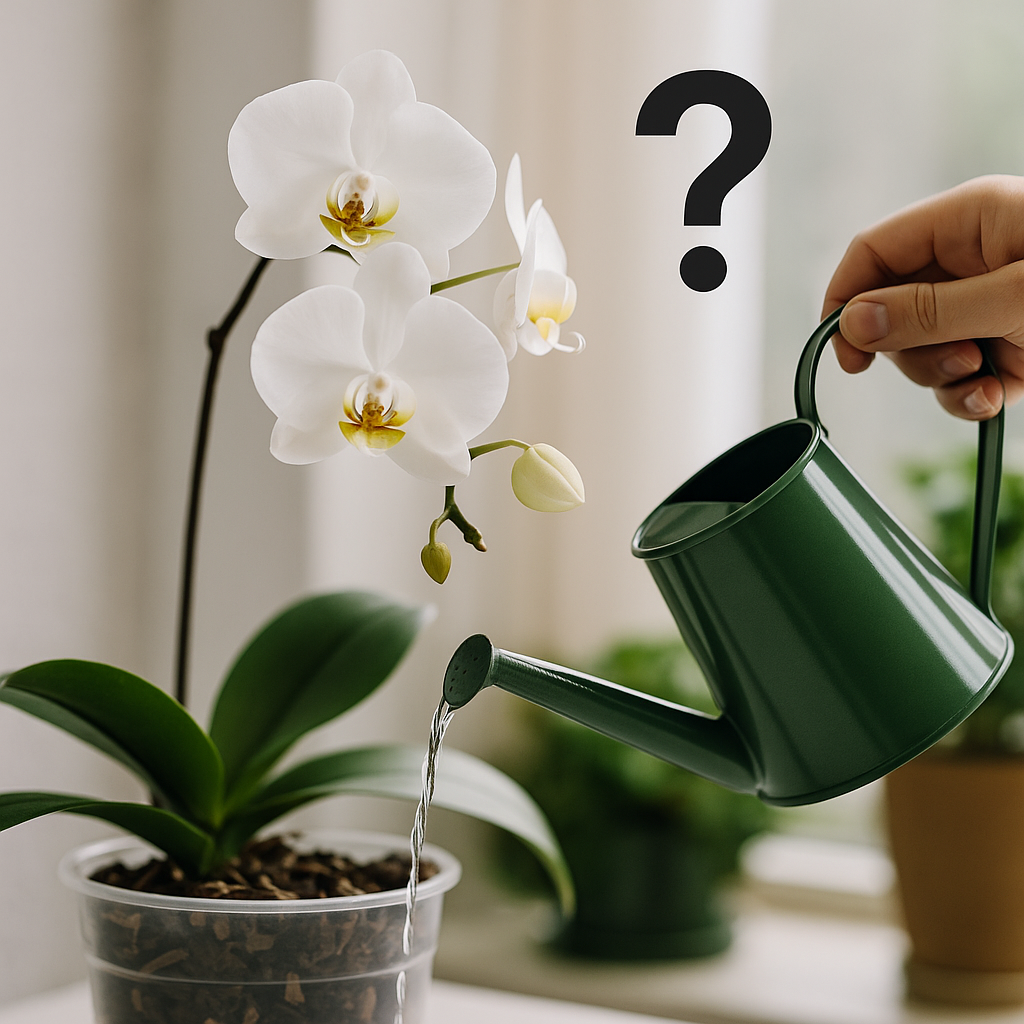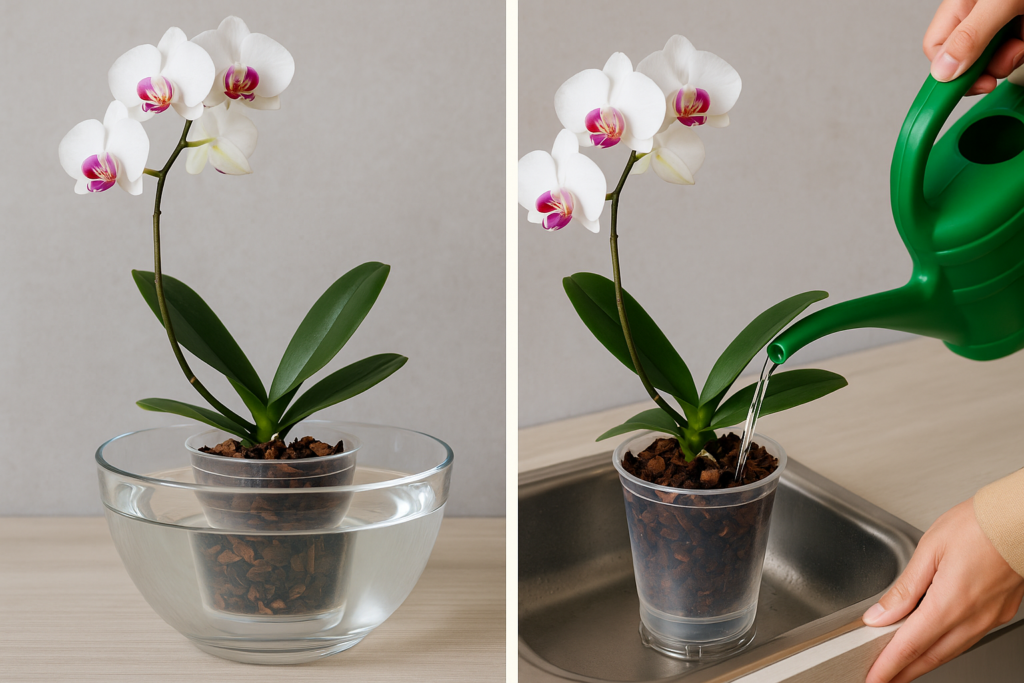🌸 Elegant, delicate, and sometimes a bit temperamental, the Phalaenopsis orchid is one of the most popular indoor plants… and also one of the most commonly overwatered or underwatered. Too much or too little water often leads to limp leaves, root rot, or a lack of blooms.
In this article, we’ll explain how to water your orchid properly, how often, what type of water to use, and which method is best — so your plant can thrive beautifully in your home.

1. Understanding the orchid’s water needs
Orchids are neither typical tropical plants nor cacti. In the wild, they grow attached to trees, with their roots exposed to the air. That’s why they don’t like standing in water!
🌱 They need:
- Infrequent but regular watering
- A well-draining substrate
- Good airflow around the roots
💧 Too much water = suffocated roots
💧 Too little water = wilted leaves and no flowers
👉 For more details, check out our guide:

Is your plant getting too little or too much water?
Taking care of your indoor plants can sometimes feel complicated, especially when it comes to giving them the right amount of water. Too much or too little? Both extremes can harm their health. Fortunately, by observing certain signs and using modern tools like a plant analysis app, you can quickly diagnose your plant’s condition and
2. How often should you water an orchid?
Watering frequency depends on several factors: the season, room temperature, humidity levels, and the type of pot.
On average:
- Once every 7–10 days in summer
- Once every 15 days in winter
💡 Pro tip: Touch the visible roots in the pot.
If they’re grey and dry → time to water.
If they’re green and plump → wait a few more days.
3. Which watering method should you use?
Forget the traditional watering can! Orchids prefer soaking or gentle rinsing:
🌊 Soaking (the bath method):
- Submerge the pot (without the decorative outer pot) in a bowl of room-temperature water
- Let it soak for 10–15 minutes
- Drain well to avoid stagnant water
🚿 Gentle shower (the rinse method):
- Slowly pour water over the bark substrate above a sink
- Let the water drain completely
⚠️ Never leave water standing in the saucer or outer pot. That’s the quickest way to cause root rot.

4. What kind of water is best?
Avoid hard tap water with high calcium levels, especially if you live in a region with hard water.
💧 Prefer:
- Filtered rainwater
- Low-calcium mineral water
- Tap water left to sit for 24 hours at room temperature
5. Orchid looking sick? Watering might be the cause
If your orchid shows:
- Soft or wrinkled leaves
- Brown or mushy roots
- Spots or slow growth
👉 The watering method may be wrong, or fungal/bacterial infections could have developed due to excess moisture.
🌿 Learn more in our full article on plant diseases in cities:

The Impact of Climate Change on Urban Plant Diseases
Introduction: The Importance of Urban Plants Trees, shrubs, and flowers in urban areas play a vital role in our cities—far beyond just aesthetics. They improve air quality and living conditions, foster social connections, and contribute to public health. The World Health Organization emphasizes that urban green spaces offer innovative ways to strengthen city resilience, reduce
In summary: best watering practices
Water every 7–10 days on average ✅
Use the bath or rinse method ✅
Always let the pot drain completely ✅
Observe the roots — they tell you when to water ✅
Use low-calcium water ✅
Adjust frequency with the seasons
👉 Love orchids ?
Visit verdivista.com every week for new articles, natural care tips, and indoor plant inspiration 🌿
